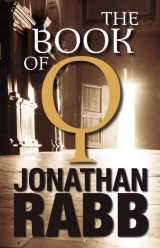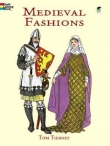
Текст книги "The Book of Q"
Автор книги: Jonathan Rabb
Жанр:
Триллеры
сообщить о нарушении
Текущая страница: 12 (всего у книги 28 страниц)
“They love me out there,” replied Dominic, a wink to Pearse as his brother pulled a second set of pages from his hands.
“They love God, Nikki. They tolerate you.”
“ Barelytolerate.” Dominic laughed. “By the way, the professor speaks Greek.”
The older Andrakos hesitated before turning to Pearse. “Oh. Of course,” he said, extending his hand. “I’m sorry. Constantine Andrakos. I’m not usually this-”
“No need to apologize,” said Pearse, shaking his hand. “Peter Seldon. I’m the one you should be taking to task. It’s my fault that this has all been so last minute.”
“You’re nice to say so, Professor, but you don’t know Dominic. It isn’t the first time.” He reached into a drawer and pulled out two rather impressive-looking envelopes. Pearse noticed they were both addressed to the Holy Community of Mount Athos, the great imperial crest-the double-headed eagle of Byzantium-at the top. “They delivered the diamonitiriofifteen minutes ago. The ink is probably still wet.”
Dominic took the passports and, trying his best at a pose of servility, asked, “And the boat? Did you get the boat, Stanto?”
“Yes, I got the boat,” he replied, as if to a child. “It’ll be waiting for you at Ouranopolis. Brother Gennadios will meet you at Daphne. He said he’s looking forward to seeing you.”
“I told you they loved me.”
“I think he meant the professor.” He turned to Pearse. “Gennadios mentioned he once did some work on Ambrose.”
“Really.” Pearse smiled. “I … can’t wait to talk with him.”
Dominic was already at the door. “I’m sure you’ve got plenty of work to do. Wouldn’t want to get in your way.”
“No, you wouldn’t want to do that,” said the older Andrakos. “Just try and get there in one piece.”
The eighty miles to Ouranopolis-the Gate of Heaven, little more than a village at the base of the Athos Peninsula-took just over two hours, remarkable, given the condition of the roads.
“I once did it in an hour and forty-five.” Andrakos beamed as they parked on a street barely wide enough for the car doors to open. “A friend of mine claims an hour and a half, but he did it alone. Mine still stands.” He pulled out a piece of paper, scribbled something on it, then placed it under the wiper. “It’s for the fellow who lives here,” he explained. “Just telling him when we’ll be back, and to move the car if he needs to.” Pearse noticed the keys still in the ignition. A different way of life in Ouranopolis.
They emerged onto another street, this one slightly wider, a few patches of cobblestone in need of repair. It wended its way down through the village, the small houses on either side like giant sandstone steps leading to the shore.
“The place seems empty,” said Pearse.
“Most of the boats are still out on the water. But it’ll be loud enough in about an hour. Once they get back and start drinking.”
“More of the stuff we had at your place?”
Andrakos laughed. “That’s rice water compared to this. I won’t tell you how many times I’ve come out here and not quite made it out to the mountain.”
“Different kind of research.” Pearse smiled.
They neared an ancient tower hovering by the water. One or two windows pockmarked its upper reaches, stucco unevenly slathered along its face, scars of brick peeking through. It peered down, superior only in its height, the one sign of real civilization against the timeless backdrop.
“From what I’ve heard,” said Pearse, “you’d probably need something a little stronger than ouzo if you had to take care of these monks. They tell me they’re a pretty austere bunch.”
“Austere? These boys take it so seriously, they don’t allow anything female on the mountain at all. Anything. No sow, no cow, no hen. And all because a couple of them got a little friendly with some of the shepherds’ daughters about a thousand years ago…. Probably why they call it the Garden of the Virgin.”
Pearse laughed. “I’m not sure the Holy Mother would agree.”
“Why? Even she wouldn’t be allowed out there.”
Arriving at the shore, they headed out along a narrow jetty, its wood and spikes groaning under the weight. A small cabin stood at the end of the pier, a single light inside. Andrakos stepped toward it. “I’ll be back in a minute.”
The door smacked shut, followed by the din of conversation. It quickly faded as Pearse moved to the edge of the landing. For the first time in days, he stood alone.
It would have been enough to close his eyes, trace the lapping of the waves, once again less frantic than those he had known on the Cape; or to breathe in, the taste of tangerines mixed with hewn grass on his tongue; or to shut them all out and simply gaze at a sun already dipping to the Aegean, clouds streaked a beet red against the thickening blue of a summer sky. Instead, he had them all, a barrage of pure radiance, somehow releasing him from all thought. His eyes fixed on a point perhaps a hundred yards out, a patch of perfect stillness. Weightless. And for a few moments, he was there, freed from everything around him, floating, adrift. He could feel the water rise about him, cup his head and arms, effortless.
“Now you know why the monks come.” Andrakos was by his side, silently staring out. “And why the mountain is theirs.”
Pearse continued to hold it in his grasp, unwilling to let go until Andrakos had moved off. He then turned, the image almost too perfect-a small fishing boat tied up some ten yards back, squat captain, tangled gray beard.
Greece was making good on all its promises.
Andrakos remained by the wheel, chatting with the captain for the length of the trip, leaving Pearse alone to take in the full measure of Athos from the sea. He stood at the prow, hands clasped to the rusted metal rail, an ever-increasing sense of insignificance as the mountain opened up in front of him.
What began as a rise of grass and trees soon gave way to the surge of ragged stone, slopes crumbling toward the sea, rock clusters strafing the ground, green-and-white embers shimmering against a dusking sky. And wherever the blanketing of oak and brush tried to assert its will, wide scarps of serrated wall rose up to thwart all but the most vigorous attempts. Even the scattered tufts of misted cloud that floated above offered little more than false hope against the unforgiving and relentless terrain.
The God of Athos was a vengeful God, testing his faithful, unwilling to grant them an easy piety.
And yet, the mountain’s beauty was undeniable, not simply for its fierce grandeur but for the totality of the place, a finite depiction of the rift between sea and sky. Unpeopled, it held a kind of primal wonder.
Pearse stood breathless, awed by its majesty, more by its carnality, a living, breathing earth. The mountain was holy, less for the men who chose it as their refuge as for the touch of the divine in its every aspect. A sanctity conferred by the brutality of nature.
That truth gained even-greater clarity as the first of the monasteries emerged, perfect linear form rising from the rugged chaos of the mountain face. Neat rows of balconies and roofs hovered above the slopes, a bell tower with fattened Byzantine dome peeking out from the tidy angularity. The sun lay too low to permit any real detail, lights from within shimmering a constellation’s outline of the tiny city above. The pattern ducked and turned at odd moments, projecting wild limbs from the main body. Too soon, though, it slipped from sight, another configuration appearing in the distance, the mountain’s zodiac taking shape against the now-darkened sky. Some of the monasteries had dared to climb high, blurring the distinction between earth and stars; others had pitched low in tapered valleys, their shape like the flow of untamed water. Each a pocket of perfect order, a thousand years of strict devotion.
And one, he knew, the guardian of a parchment whose truth transcended even the splendor of the mountain itself. Staring up into the sky, Pearse understood-perhaps for the first time-what it was that had brought him here. And what it was to be so close.
As the boat bobbed along the shore, his gaze fixed on the tip of the mountain, its peak lost in a crown of cloud. Even at night, though, one could make it out, the glow from the single monastery at its base bathing the nimbus in a golden hue.
St. Photinus stood alone at the edge of the peninsula, the most sacred of sites reserved for the holiest of the monasteries.
The captain slowed the engine and let the boat drift toward the piers of Daphne, the village-halfway down the peninsula-as far as he could take them. From here, they would go by mule or truck, depending on the severity of Photinus’s approach.
Grinding the engine into reverse, he angled the boat in between the others moored at the dock, the sound jarring against the quiet of the place. Pearse saw Andrakos slip the man a few bills before grabbing his pack and joining him on the pier.
The place lay deserted, a few muffled sounds from the town above, nothing to compete with the boat as it pulled away. Andrakos headed up the stairs, surprisingly silent, Pearse behind. When they reached the road, they found it empty, as well. Andrakos dropped his bag and sat; Pearse did the same. Still, not a word. Obviously, there were new rules on the mountain. The only sound was the clink of glasses from some unseen tavern, a few drinks before the last of the boats headed back to Ouranopolis.
They didn’t have long to wait before the sight of two bouncing lights appeared off to the right, Andrakos quickly getting to his feet. As the truck pulled up, he swung the pack onto his shoulder and placed his hands at his back. The sham supplicant from his brother’s office now transformed into the real thing. Pearse followed his lead, a pose of quiet respect as the monk stepped out to greet them.
“Who are you fooling, Dominic?” Brother Gennadios laughed as he approached, rapping the younger man on the arm as he drew up. He wore the classic black robe of Greek Orthodoxy, the bonnet on his head tilted at a somewhat daring angle. His forearms, now around Andrakos’s back, were thick and muscular, a rug of hair extending as far as his knuckles. Pearse noticed the impish smile on the younger man’s face as Andrakos looked up.
“I had himgoing,” he answered, nodding to Pearse, the familiar twinkle back in his eyes.
Gennadios turned to Pearse, eyes wider still as he grabbed both of his shoulders and pulled him in close, a kiss on each cheek. His grip was exceedingly powerful, the two men roughly the same height, the monk a good hundred pounds heavier. The softness of his beard surprised Pearse.
“Professor Seldon. What a pleasure. I’m Gennadios. I apologize for the time you’ve had to spend with this one, but life is filled with tests, none more trying than young Andrakos here.”
“He’s not so bad if you’ve had a few drinks.”
Gennadios erupted in laughter, then cupped Andrakos’s neck in his hand. “Like an open book, Dominic. Like an open book.” He turned again to Pearse. “You didn’t let him drive, did you?”
Before Pearse could answer, the monk was shuttling them into the truck, packs tossed in the back, the front seat a patchwork quilt of vinyl and duct tape. Squeezed inside the cab, Pearse guessed that the white Ford had been around longer than Gennadios himself, the crunch from the gearbox confirmation as they set off.
The drive at night was far less compelling than the view from the water, intermittent shots of the mountain quickly obscured under a tangle of leaves and thickets. What few openings they came to offered only momentary bursts of stars. Without someone familiar at the wheel, Pearse realized, the road would have been impossible to traverse, hardly a light to warn of the sudden twists and turns, at one point the monk forced to take the truck down to a virtual stop so as to manage one of the hairpins. Even at ten miles an hour, the constant bouncing from the combination of rutted road and shockless wheels made communication all but impossible. It was something of a lifesaver. Gennadios was pouring forth with what seemed to be everything he knew about Ambrose. Pearse smiled and nodded, happily unable to catch more than a word or two here and there.
Fifteen minutes into the lecture, the monk pulled the truck over.
“… which might have changed Augustine’s entire outlook. Anyway,” he said, shouldering his door open and tossing the keys onto the dashboard, “you should come out my side. We wouldn’t want to lose you over the edge on your first night.”
Pearse peered out at the sudden drop off to his right, then slid across and joined the other two at the front of the truck. Gennadios handed him a lantern.
“The rest, we do by foot.”
The climb did little to help conversation, a rigorous pace through the interior of the mountain. The trees and brush sprang up far thicker here, paths just wide enough for a mule laden with supplies, gnarled undergrowth making for precarious footing. The lanterns were more to keep Gennadios in sight than to give any sense of the tip of the peninsula. Even with a breeze off the water, Pearse felt the sweat mount under his shirt, a balmy midsummer evening moistening the air. It felt good, something his body had been craving. If not for Gennadios wheezing his way up, Pearse would have pushed the pace, happy to lose himself in the physical exertion.
They climbed in dim silence for perhaps twenty minutes before emerging on an open bluff, a tiered expanse of rock, earth and sage beyond. Fifty feet to their right, the mountain seemed to come to an abrupt end, the drop-off some eight hundred feet, a full moon perched just beyond the edge of the cliff. Below, they could hear the roll of the surf. Above, a faint glimmer of light poked through.
It was St. Photinus staring down at them.
“It gets easier from here,” intoned Gennadios, clearly winded. “Another twenty minutes or so.”
He was spot-on, the monastery inching out over the last of the hillocks some fifteen minutes later. Smaller by a considerable degree than the rest of the “cities” on the mountain, Photinus still managed a rather imposing glare from its frontal assault. A stern line of cypresses stood guard along the outer wall, bits and pieces of which dated back as far as the fourth century. Most of the loose stone had been replaced by brick and mortar over time, Byzantine and Ottoman architecture colliding in a wild melange of turrets and flying buttresses. On either side, the walls matched the rise of the mountain, uneven steps climbing high along the slope, disappearing into an overgrown wood perhaps two hundred yards above, the overall effect that of a headless turtle attempting to take flight.
But it was the sight directly in front of them that demanded attention. Two ironwork doors-vast shields arching to a stone gate thirty feet high-recalled a time when the monks of Athos had been forced to fight for their piety, pirates a constant menace, a long-abandoned gunwale still visible along the topmost part of the wall. Even Photinus’s motto, etched crudely into the stonework above the doors, conveyed the dual message of refuge and resistance.
Take Peace Within These Walls and Gird Yourself to Dwell in an Armor of Loveliness and Light.
As the peninsula’s first line of defense against attack from the sea-and forever caught up in the squabbles of distant emperors and sultans-Photinus had long ago learned to guard its privacy well. Even now, it was considered the most insular among a community renowned for its isolation.
And yet, the doors stood ajar, three or four lamps from the courtyard inside lighting the last few yards of their approach.
As they entered, Pearse was astounded by the silence, no monks coming out to demand their papers. Instead, they walked undisturbed to the fountain at the center-a simple pool with a strangely ornate spout. It was a monk in prayer, the water trickling from his eyes, as if tears. Pearse stared at it for several seconds. He couldn’t help but wonder if the tears were meant for the one true and holy Christian church, a disturbing thought as he joined the other two. They were cupping great heaps of water, Gennadios on the fountain’s ledge, handful after handful to his neck. The hike had gotten the better of him. Only then did Pearse realize how thirsty he was himself. It was several minutes before any of them spoke.
“Nice climb,” Pearse finally said. “I suppose you must make the trek quite often,” he added, dabbing his neck and shoulders.
The monk breathed heavily before answering. “Maybe twice in the last six months. It’s not something I look forward to.”
“You don’t get out much, do you?”
“Get out much? I don’t understand.”
“Well, if you’ve left only twice-”
“Oh, I see what you mean,” he said, the smile returning to his face. “Dominic obviously didn’t explain. I’m not a Brother of Photinus. My home is the Great Lavra,” he added, giving a quick flick of a finger somewhere off to the east, “the secondoldest on the mountain, a mere babe compared to this one. We go back only as far as 963. But Photinus, well, it’s been around since-what is it, Dominic, 384, 85? No one’s quite sure.” He returned to the water.
“Not my period,” Andrakos answered.
“Always the best excuse,” said Pearse, Angeli’s smile appearing in front of him.
Andrakos started to respond, then stopped.
Gennadios laughed. “You’ve actually shut him up with that one. I must remember it.”
Pearse waited for Andrakos’s smile, then asked, “So it’s all right for us to be here?”
“Well, I wouldn’t have made that trip with you if I weren’t sure,” said Gennadios.
“All of the monasteries have a kind of open-door policy with one another,” Andrakos explained. “If you and I had walked in here alone, we’d be in a lot of hot water right now. As long as we’ve got the bearded one with us, they know it’s okay. I’ve actually never been to Photinus myself.”
“Five, six hundred years ago,” added the monk, “that wouldn’t have been the case. Now, with fewer than two thousand of us scattered among the monasteries, we’ve let things loosen up a bit.”
“Without this one here”-Dominic placed an overly enthusiastic hand on Gennadios-“I wouldn’t have been able to see half the archives I’ve needed for my work.”
“And withthis one,” the monk nodded, taking Andrakos’s hand from his shoulder, “you’ve managed to get me in all sorts of trouble with half the abbots on the mountain. Brother Timotheos at Stavronikita still isn’t talking to me.”
“That’s because he’s taken a six-month vow of silence.” Andrakos laughed.
“It’s still no excuse.”
Pearse laughed as well, the sound echoing throughout the empty courtyard. It seemed to prompt movement from one of the far buildings, a strange aggregation of striped archways topped by a maroon attic with gabled roof. A small figure appeared from a side door, another black cassock gingerly making its way across. He seemed to glide across the flagstone.
“I see you made it without too much trouble,” he said as he neared them, catching Gennadios in middip, the larger man spinning around and at once pulling the diminutive monk into his barrel chest, an embrace that would have gotten the better of a man twice his size. Still, the little monk held his own.
“You need a bath” were his first words as he disentangled himself from the bear hug. “And our fountain won’t do.” The two laughed.
“It’s good to see you, too,” said Gennadios as he stood to make the introductions. “Professor Seldon, Dominic Andrakos, this is Brother Nikotheos, librarian of St. Photinus, and a man with a finely tuned nose.”
There was an almost feminine quality to his face, delicate olive-shaped eyes, soft white skin amid the wrinkles. Even his beard seemed to soften its texture. His hands, however, betrayed his years, browned and bony. Pearse guessed Nikotheos to be somewhere in his early seventies. “We don’t usually allow guests to arrive after the second meal-in fact, we don’t usually have guests at all-but Gennadios explained your work on Ambrose. I wasn’t aware he’d ever made the trip.”
“I guess that’s what I’m here to find out.” Pearse smiled.
“Yes.” It was clear he’d expected a bit more by way of explanation. When none came, he nodded to the little group and said,“Well, let’s get you to your rooms, perhaps a quick tour. It’s late for us.”
Pearse’s was the last of the cells they came to, more of the flagstone, stark white walls, a small desk and iron bedstead below a single window. The glass panes were pulled open, the smell of minted olives in the air.
As he had done for Gennadios and Dominic, the monk retrieved two bowls from the shelf by the door, one filled with dried fruit and nuts, the other with rose-scented loukoumi, the Greek version of Turkish delight. He placed them on the desk.
“In case you get hungry during the night. We’re up before the sun, first prayer at four.” He turned to go, then stopped. “Oh, I meant to ask-are you Orthodox or heretic?”
It was a question Pearse had hoped to avoid. He knew that the few non-Greek Orthodox they permitted on the mountain were generally of the harmless tourist variety. Those who wished to see the manuscripts were put to far greater scrutiny. Too long a history of disappearing documents, miraculously reappearing in the British Library and the Vatican, had made the monks justifiably wary. Their distrust of Catholics verged on mania.
“I’m a Catholic,” Pearse responded.
“Oh, I see.” Nikotheos’s expression remained unchanged. “How sad for you.” Again, he moved to the door, then stopped. “I wouldn’t make that public knowledge. Several of the brothers feel quite strongly about it, the abbot included.” A smile. “But we’ll make sure you get to see the manuscripts. I’d love to find out how Ambrose ties in with us here.” And with that, he was out the door, pulling it shut behind him.
Pearse tossed his pack onto the bed and stepped to the window, a light mist having settled in the last few minutes. Such was the whim of mountain air. It hung on the upper reaches of the buildings, the moon lost behind it. Even so, he could see the monastery stretch out in front of him, the slope of the mountain giving his third-floor cell a near-panoramic view.
It was far bigger than he had imagined, wide pockets of open area extending up to unseen distances, all of them surrounded by a wide assortment of fifteen centuries of architectural evolution. Closer in to his right, the fountain continued its endless trickle of water, the patter echoing in soulful meter; only the occasional brush of leaves and a flapping of wings broke through the silence. As he continued to stare out, he saw Nikotheos arrive in the courtyard, the monk moving slowly, snuffing out lamps as he went. The area grew dark, save for one or two paraffin lamps glowing in the windows above, late-evening prayers, last-minute assurances.
For the most part, Pearse had little idea what lay out in the darkness. Nikotheos’s quick tour had been just that-quick. One or two of the smaller chapels, refectory, library-all in swift succession, only the last of them, he had discovered, behind locked doors.
“There was an incident at the Great Lavra a few years back,” the monk had explained. “Raiders in motorboats with guns. They stole quite a few manuscripts, gold reliquaries, even a few icons. They were caught, thank heavens, but the damage had been done, illuminations ripped out, destroyed. We keep these doors bolted at night now. Not what I would like, but what can you do?”
Pearse had been relieved to hear that the rest of the place remained open. From Angeli’s notes, he knew he’d have no need for the library and its manuscripts.
Unfortunately, that was all he knew. Little of what he now saw resembled the map she had drawn. Much had changed in nine centuries, most of the buildings fourteenth– and fifteenth-century additions, still others from the golden age of the czars, when Russian Orthodoxy had taken Athos under its protective wing. The one piece that tied the ancient Photinus to its more modern progeny was the outer wall itself, a basic triangle, the entrance doors a fixed landmark situated at the center of its base. He had to hope Angeli’s calculations were accurate enough to lead him from the fountain courtyard to the “Vault of the Paraclete,” a room somewhere within one of the more ancient buildings still standing.
It was odd to think how close he was to whatever was hidden within the Vault, how long the parchment had waited to be found.
If, of course, it was still there. And if Angeli had deciphered the scroll correctly. Too many variables.
A breeze lifted off the water, more of the olive and mint, a gentle reminder of the world he now inhabited. For some reason, the face of the priest from San Bernardo filled his thoughts, the ancient shoulders swaying back and forth, the whispered chant from his weathered lips. Pearse imagined the old man would have liked it here.
He turned to the bed, and he noticed a monk’s robe hanging on the door, evidently the preferred garb even for guests. Perfect, he thought. He would rest for an hour, then go. Better with everyone asleep.
After all, he had to be back by first prayer.
“O existent in very truth.
O being which beholds the aeons in very truth.
Unseen unto all but me.
Unseen unto all.
Eeema, Eeema, Ayo.
O self-originate that lacks nothing and is free,
I have come to know you and to mix with your immutability.
I have girded myself to dwell in your armor of loveliness and light.
And I have become luminous.”
The boy, no more than sixteen, rose from his knees, trying his best to mask the relief pounding in his chest. It was the last of the prayers he would have to recite on his own. The rest, he knew, he could do in his sleep, hadbeen doing in his sleep for the last six months. Preparation on preparation.
Hair parted neatly to one side, he wiped away the few beads of perspiration that had collected on his brow and upper lip. Dressing this morning in his hotel room, he’d assumed the air in the grotto would be cooler, the four floors of solid rock beneath the Ninety-fourth Street armory enough to fend off the heat. No such luck. The thick initiate’s robe wasn’t helping matters, either.
It just went to show how little an Ohio boy knew about New York summers.
Six others waited with him on the beama, the raised platform at the grotto’s center, each of their faces illuminated in a billowing light from torches placed along the walls. Several ancient tapestries hung down as well, not even a hint of air to ruffle their faded colors. If the elect were hoping to shroud the ceremony in a kind of medieval patina, they were more than succeeding. The young men stood entranced.
“You have been formed within the orbit of the light,” chanted the trio of elect, who stood behind the group of initiates.
“So that in your company I might have life in the peace of the saints,” they responded as one.
“And so we welcome you. For the light is within your bosom, an unreproachable light, the sign of the prophets within you.”
“O Iesseus-Mazareus-Iessedekeus.”
“O Mani Paraclete, prophet of all prophets.”
“Eternally existent in very truth.”
“Eeema, Eeema, Ayo.”
The princeps-the highest of the elect-now passed behind each of them, the ritual laying on of hands, a silent prayer. He wore a white cotton shawl pulled up over his head, the rest draping to his knees, a distant cousin of the Jewish tallis in all but the missing Hebrew lettering at the collar. Even the way he manipulated the fringed corners bespoke a connection to an Aaronic past. When he had finished, he kissed each of them on the cheek, followed by the sign of the cross on their foreheads, the sign of the trihedron at their breasts. One by one, the boys stepped down from the beamaand took their places among the thirty or so men seated in the chamber. The boy returned to his father’s side.
No words of congratulations. No recognition of any kind.
When the last of them was seated, the princepsremoved the shawl from his head and placed it around his shoulders, the face of John Joseph Blaney now revealed to the assemblage. “Let us recall the Primal Aeons,” he said; the gathering rose. “The Deep,” Blaney began.
“The perfect parent, prior source, and ancestor,” they responded.
“Silence.”
“The betrothed. Thought, loveliness.”
“The Intellect.”
“The only-begotten, the parent and source of the entirety.”
“Truth.”
“The betrothed.”
“The Word.”
“The parent and source of fullness.”
“Life.”
“The betrothed.”
“The Human Being.”
“The Human Being.”
“The church.”
“The betrothed.”
“These are the Primal Aeons. Through them, we bind our wills to Your knowledge; through our knowledge, we are bound to Your will. In the Father of Greatness, who resides in the realm of Light. In the Power of the cosmos, who brings our salvation. In the Wisdom of the ages, who returns us to the wholeness of our church.”
“In the Father, the Power and the Wisdom.”
Blaney stepped back to a small podium at center. “And let us recall the ‘Perfect Light, the True Ascent.’”
As one, the voices began:
“It is from the perfect light, the true ascent that I am found in those who
seek me.
Acquainted with me, you come to yourselves, wrapped in the light to
rise to the aeons.
For I will illumine in your illumination;
I will ascend in your ascension;
I will unite in your union.
It is I who am the riches of the light;
It is I who am the memory of the fullness….”
The boy continued to chant, his mind wandering as the words flowed freely. For as long as he could remember, he had committed the prayers to memory, the rituals that had prepared him for today, his father as guide. Always in strict isolation, so different from the shallowness of Sunday, when he would watch his father play the role of minister, stand behind his pulpit and preach words that seemed so far from the truth.
As his mind drifted, so, too, did his gaze, faces all around him, many of which he recognized from neighboring towns-Davenport, Kenton, Elmsford-none of which he had ever associated with the private world he and his father had shared.
Until today.
The journey north to the elect. The day of illumination. Entrance into his cell.








